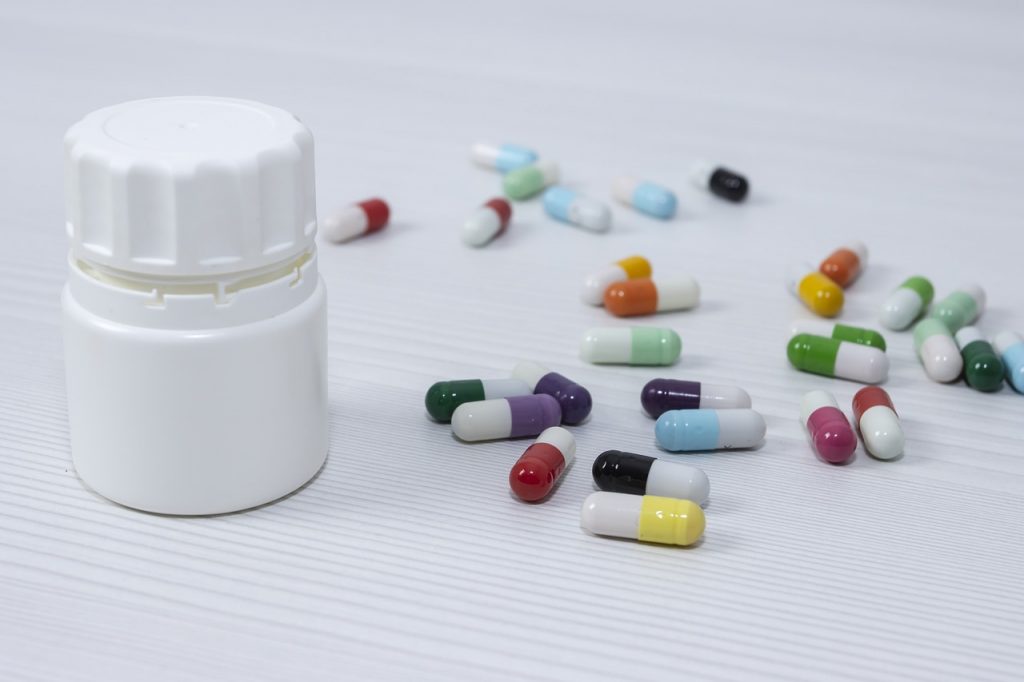There is a broadly accepted narrative that posits that the ‘placebo effect’, the apparent change in the condition of a patient following an inert intervention, demonstrates the amazing power the mind has over the body. Through some psycho-biological alchemy, convincing a patient they have taken a drug will cause them to experience the effects of that drug, even if all we really gave them was a fake pill.
Proponents of this narrative are often light on detail for how this might actually work, invoking instead the wishy-washy sounding ‘mind-body healing process’, or something similar. On rare occasions they might invoke endorphins or dopamine but, while these chemicals can be produced in response to psychological changes, they have a limited range of effects.
An alternative interpretation of the same observations says that placebo effects are mostly made up of statistical effects and biased reporting. Convince a patient they have taken a drug, and they tell you they are experiencing the effects of that drug, which is not the same thing as actually experiencing it. What happened and what the patient says happened are obviously related, but patient reports are also influenced by the biases and opinions of the clinician and the patient themselves.
Psychological factors like the Subject Expectancy Effect can mean that patients report what they think should be happening, rather than what is happening. Demand Characteristics can mean that patients report what they think their doctor wants to hear. Even simple politeness can result in misleading answers coming from otherwise well-intentioned patients, who don’t want to upset or disappoint the researchers.
Beyond this, we can also recognise that some fraction of patients will see an improvement anyway, no matter what you do. Many medical conditions will run their course and spontaneously resolve. Other conditions wax and wane, and patients who join a trial when their symptoms are at their worst will naturally improve regardless of the intervention.
One researcher even contacted The Skeptic to highlight cases where doctors have exaggerated the severity of their patient’s condition to ensure they meet the eligibility criteria of a trial. Which means those patients appear to make an immediate and miraculous improvement, regardless of whether they get real medicine or a sham control.

If we view the placebo effect as the bucket into which we toss our biases and other contextual effects, there is no need to invoke a mysterious mind-body healing process, or decree that the placebo effect is one of the strongest medical responses there is.
Over the past decade or so, numerous media reports have outlined how the placebo effect is somehow getting more powerful. For example, the gap between the effectiveness of painkillers and placebos in clinical trials has narrowed significantly since the 1990s. In one report from 2015, a research team led by Alexander Tuttle found that the ‘treatment advantage’ (the improvement from the active treatment over and above the placebo group) had diminished from 27% in 1996, to just 9% by 2013. This reduction was driven by an increase in the placebo response; as the mysterious placebo effect grows in strength, drugs are struggling to compete.
The phenomenon itself is real enough. Tuttle is not the only researcher to have documented that placebo responses in trials appear to be increasing over time, particularly for subjective outcomes. The question is not whether this trend exists, but how we interpret it.
All in the interpretation
Under the standard mind-over-matter narrative, this is a strange and mysterious thing. Why should placebos work better today than they did 20 years ago? Is it because we have greater faith in doctors and medical science? Is it because of television advertising, promoting how powerful and effective drugs are? Somehow, this makes dummy pills more effective painkillers than they used to be?
Perhaps a more parsimonious explanation is this: placebo responses have not increased because of any therapeutic effect, but because trials have become better at isolating treatment effects from noise. As methodological standards improve, non-specific effects that previously leaked into the treatment arm are more accurately contained within the control group.
Or to put it another way, the treatment advantage was always 9% and when we measured it at 27% in the past we were in error. Our trials at time were not sufficiently well designed or conducted to offer accurate results.
These competing interpretations are not merely academic, since each generates distinct empirical predictions. If placebo effects were genuinely becoming more powerful, we would expect to see gains not only in control groups but also in groups receiving the active treatment. Since any drug effect adds to the placebo effect, both arms should benefit from a growing placebo response. The rising tide lifts all boats, as it were.

However, if placebo responses are increasing due to improved trial methodology, the overall effect would remain unchanged and the gap between treatment and placebo would narrow. Non-specific effects that had previously inflated the apparent treatment effect are now correctly controlled for.
When researchers have examined how placebo and treatment responses have changed over time, the results align better with this second explanation. Tuttle analysed US trials of neuropathic pain and found that, while placebo responses increased, outcomes in active treatment arms did not. A similar pattern emerged in antidepressant trials. These findings are difficult to reconcile with the idea of an increasingly powerful placebo effect.
The geographic distribution of this effect provides further evidence. Tuttle reported that the increased placebo response is most pronounced in trials conducted in the United States, while trials elsewhere have shown no comparable trend. Crucially, these US-based trials also tend to have longer durations and larger sample sizes, features associated with greater methodological rigour.
Proponents of the powerful placebo hypothesis have attributed the US-specific increase to cultural factors, such as direct-to-consumer drug advertising. But this explanation falls apart when we consider that New Zealand (the only other country permitting such advertising) has not reported similar increases in placebo responses.
What’s the harm?
Modern trials are longer, larger, better blinded, and more rigorously monitored than their predecessors. They employ more sophisticated randomisation techniques, standardised outcome measures, and stricter protocols for handling dropouts and protocol violations. These improvements serve to isolate the specific effects of interventions from the many confounding factors that can masquerade as treatment benefits.
When the gap between treatment and control narrows in modern trials, the correct interpretation is not that placebos have grown stronger, but that we have grown better at distinguishing signal from noise.
The misinterpretation of rising placebo responses as evidence of therapeutic potential carries real risks. Some trial sponsors have begun relocating studies to regions where placebo responses tend to be lower. Ostensibly this is for economic reasons, but it also serves to effectively avoid the methodological rigour that higher placebo responses represent.
This trend should be deeply troubling. We do not obtain better evidence by weakening our controls to maximise the chance of a statistically significant result. Rather than celebrating improved methodology that better isolates true treatment effects, the pharmaceutical industry risks undermining the very advances that make modern trials more reliable than their predecessors.



